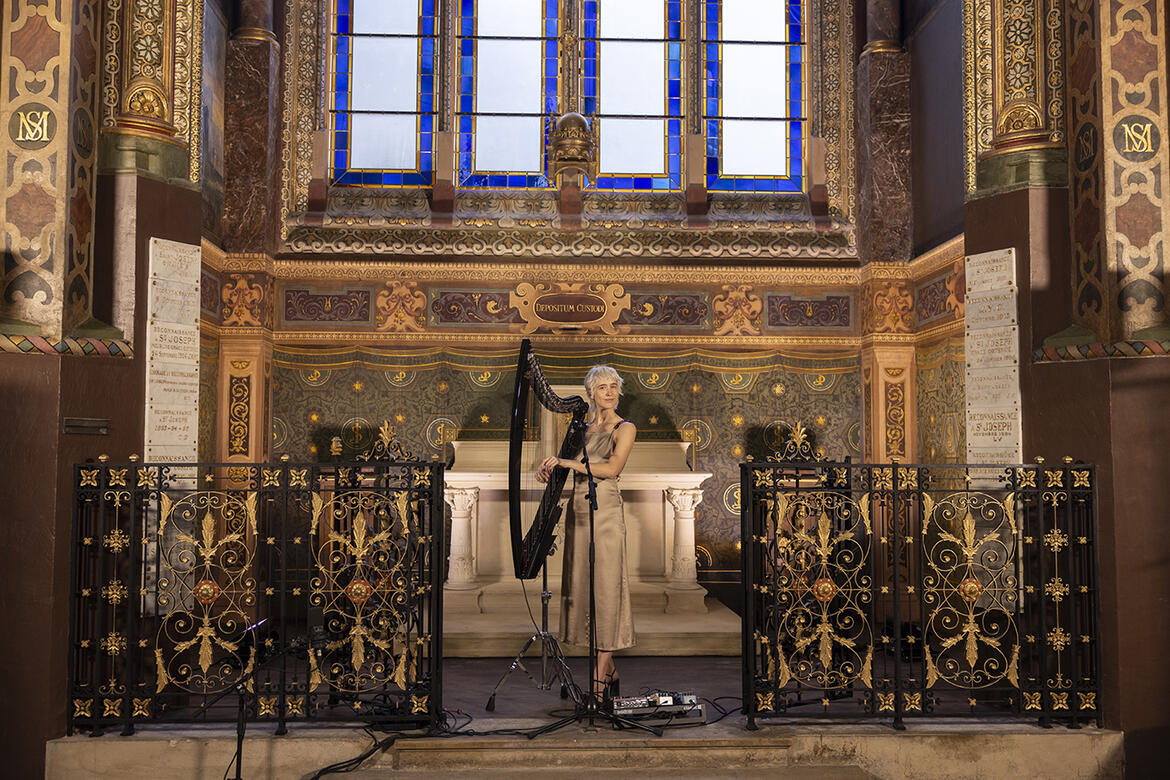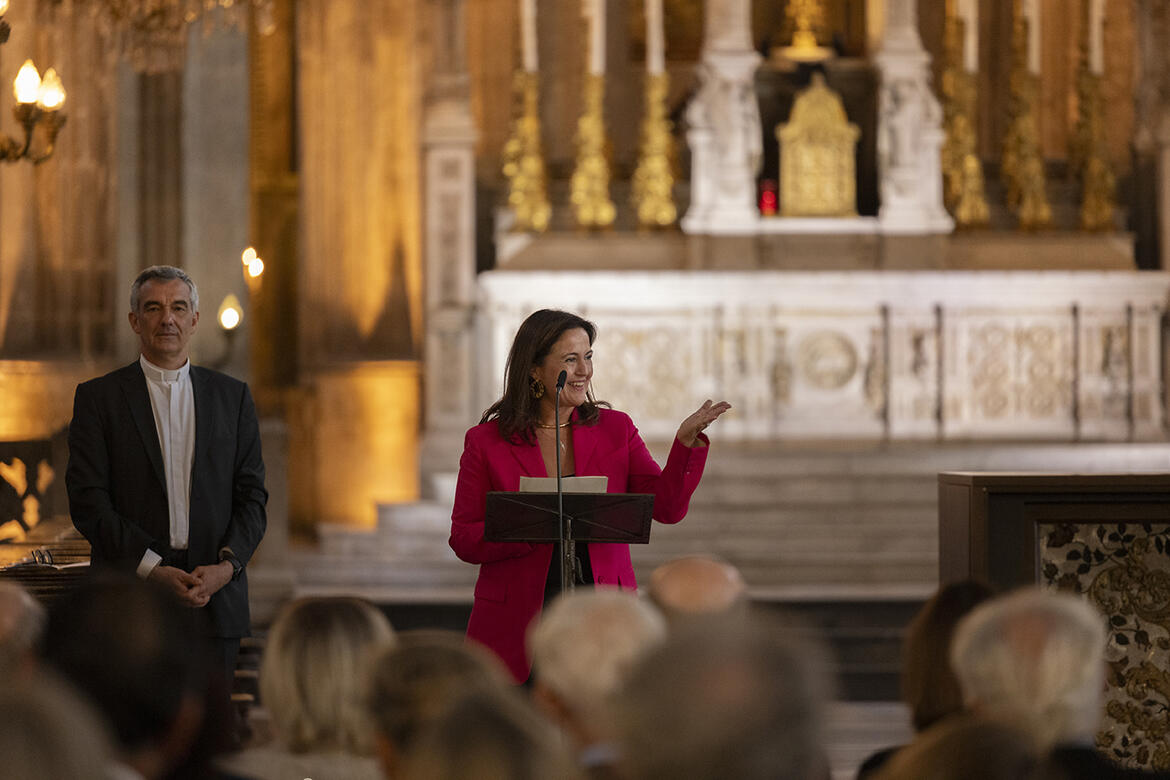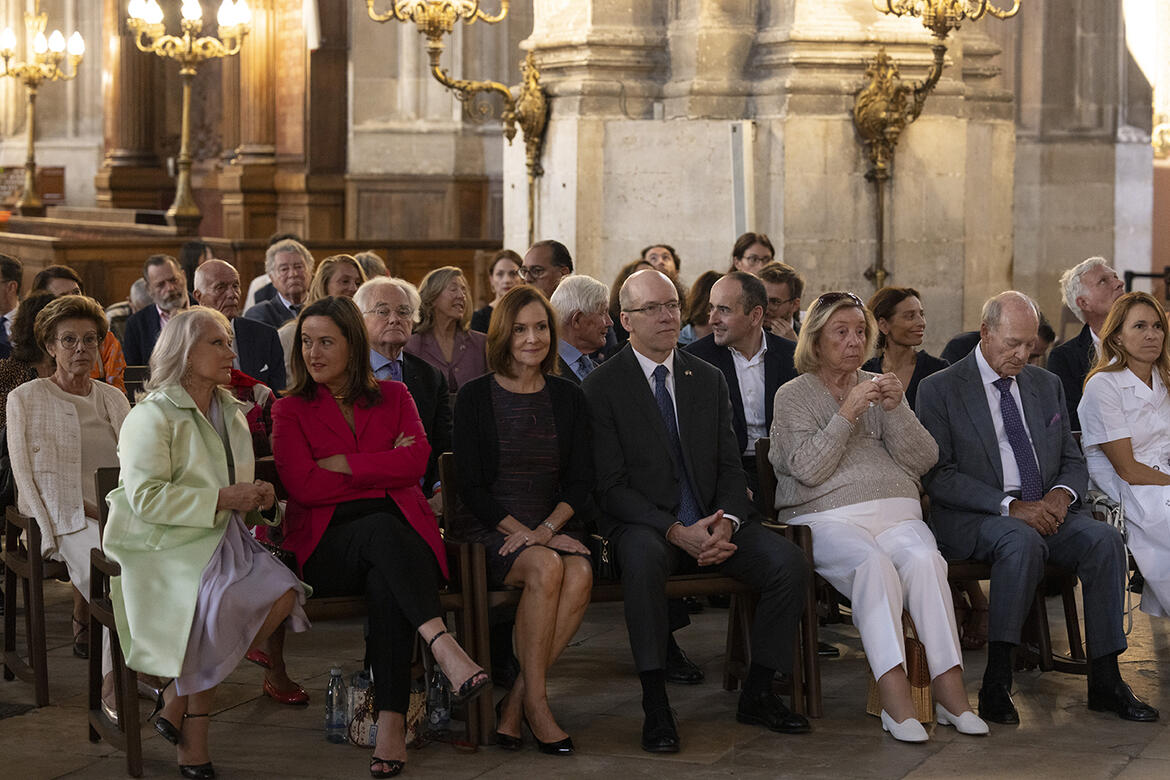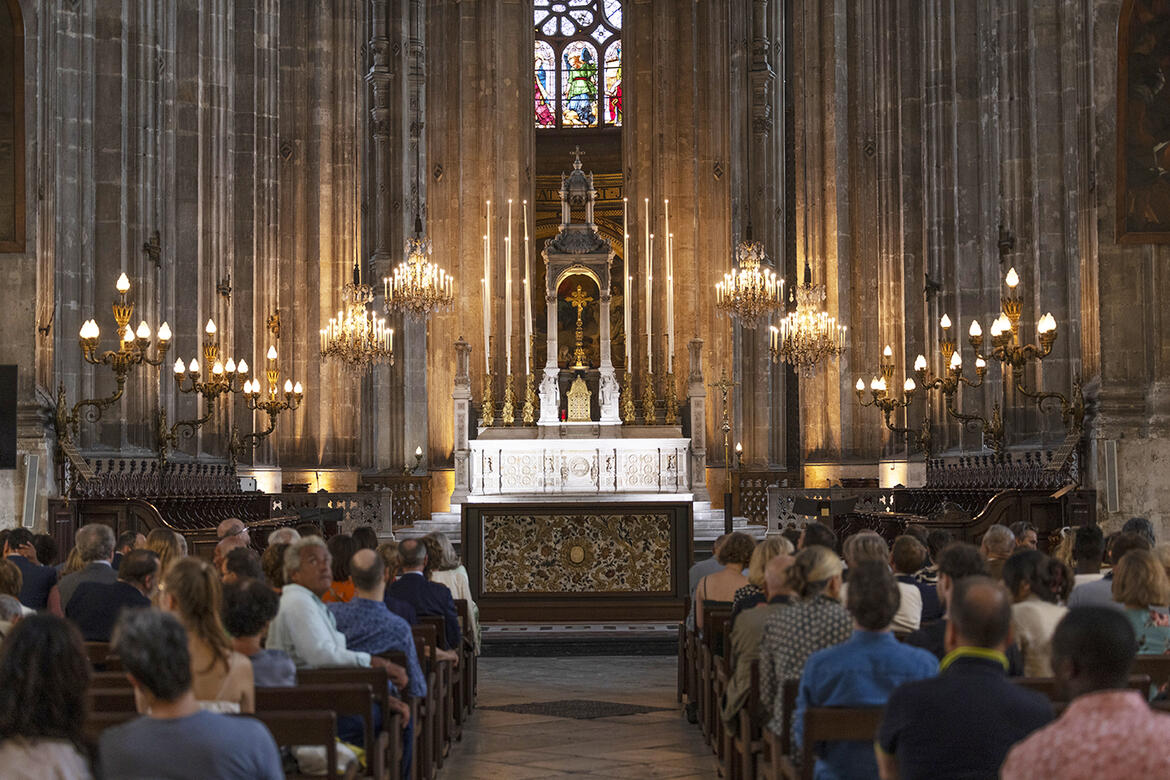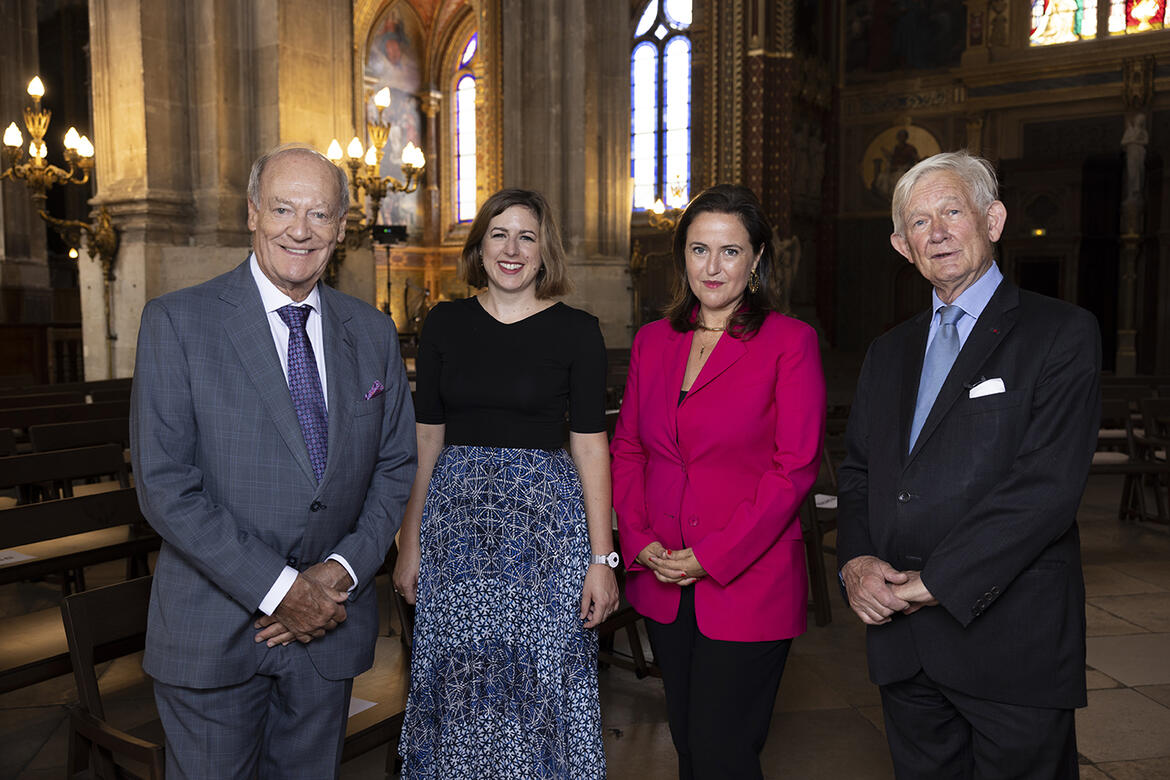"Doing Things That We Haven’t Done Yet”: An Interview with Mathilde Augé
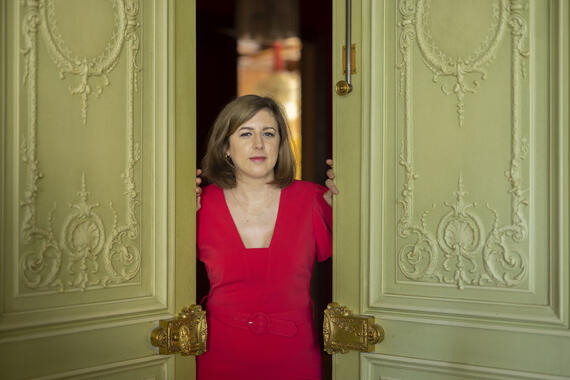
When we sat down to speak with Mathilde Augé, WMF France’s executive director, it was amidst a flurry of activity for our newest international office. The branch’s opening had just received a glowing write-up in Le Figaro and was planning the layout of their booth at the Salon international du patrimoine culturel. All of this was amidst preparations for WMF France’s official launch event—then only a week away—which would include music, speeches, and tours at project sites across the Île de France region.
Yet Augé seemed hardly fazed by the flurry of activity around her. An alumna of the École normale supérieure, the Sorbonne, and HEC Paris, she had previously stewarded cultural events at the French Institute Alliance Française (FIAF) in New York City. We met with Augé to talk about her background, her experience at WMF so far, and what the future holds for our work in France. This interview has been edited for clarity and length.
WMF: How did you first get into the world of heritage?
Mathilde Augé (MA): I started studying art history right out of high school; I specialized at that time in the artistic relationship between Paris and Istanbul. My focus was contemporary art, but I studied every period and medium.
I'd visited heritage sites since I was a young child, and I started doing it more professionally right at the start of my career. I used to work in publishing, and that also included working on different sites that were present in novels or essays. Then, as the director of programming at the French Institute Alliance Française (FIAF) in New York, I organized a series of events on different heritage sites, mostly on French sites to allow them to be better known in the U.S.
WMF: One of the reasons why WMF wanted to open this branch in Paris was to take advantage of the number of cultural institutions there. What kind of partnerships have you made or are you hoping to make?
MA: MA: One of the goals is to strengthen our ties with all of the international and French organizations based in and around France, as well as the local organizations that we're already working with on different projects, like the Musée des Beaux-Arts de la Ville de Lyon, which we are collaborating with on projects in Yemen. ALIPH, an international organization with strong ties to France, is another major partner on that project; we are also working with them, the Louvre, and the Smithsonian on the revitalization of the Mosul Cultural Museum in Iraq. I'm hoping to really strengthen ties with French experts at our projects all around the world, and also to work with experts in France interested in our international projects all over the globe—for example, working with experts from the Musée Guimet, which specializes in Asian arts, to see if we can do something with them on our work in Cambodia. We are also hoping to build local partnerships to present the work we did with the photographers from Magnum Foundation.
WMF: A major aspect of our work is capacity building. Are there any plans to do this type of work in France in the future?
MA: There are a lot of measures already in place in France to protect craft knowledge—that's what we've seen with Notre-Dame [in the wake of the 2019 fire], for example, formal trainings exist in different fields, and I am looking forward to continuing developing these trainings. Capacity building is obviously a big part of our work at the Potager du Roi because it’s now home to the École nationale supérieure de paysage [the French National Landscape Architecture School]. Students are involved in the garden—which is their campus—and even have access to a small plot in the back that is always used as a training center, where they can do whatever they want. It's a great opportunity to try and practice concrete skills, but also just to train their imagination, to consider new ways of occupying a garden. The school also has a program dedicated to training unemployed people in gardening to bring them into that career field because there’s a high demand for gardeners.
WMF: What does the future have in store for our projects in France? Is there a particular type of heritage that you would like to highlight or explore more, or a theme, maybe a geographical area?
MA: There are lots of French sites that are connected to our three global priorities at WMF, so we don’t lack options! We will start with our French Board of Directors by writing our strategy in terms of French projects. The idea is to be very inclusive in terms of geography, periods, and theme, while still focusing on exceptional heritage. In addition to building on past and current projects in France, we will expand to include different sites, in the hope of being more representative of French heritage—to do things that we haven’t done yet.
WMF France Inauguration in the News
Bénédicte de Montlaur, une idée du patrimoine
Le Figaro | September 8, 2023
Le World Monuments Fund s'implante à Paris
Les Echos | September 14, 2023
Mathilde Augé rouvre le bureau du WMF
Le Journal des Arts | September 28, 2023
Elle fait l'actu... Bénédicte de Montlaur Porte-voix pour le patrimoine mondial
Beaux Arts | October 2023 edition
Learn More
World Monuments Fund safeguards cultural heritage around the globe, ensuring our treasured places are preserved for present and future generations.
Sign up for our newsletter to receive regular updates on our projects, stories from the field, upcoming events, and more!
![]()

